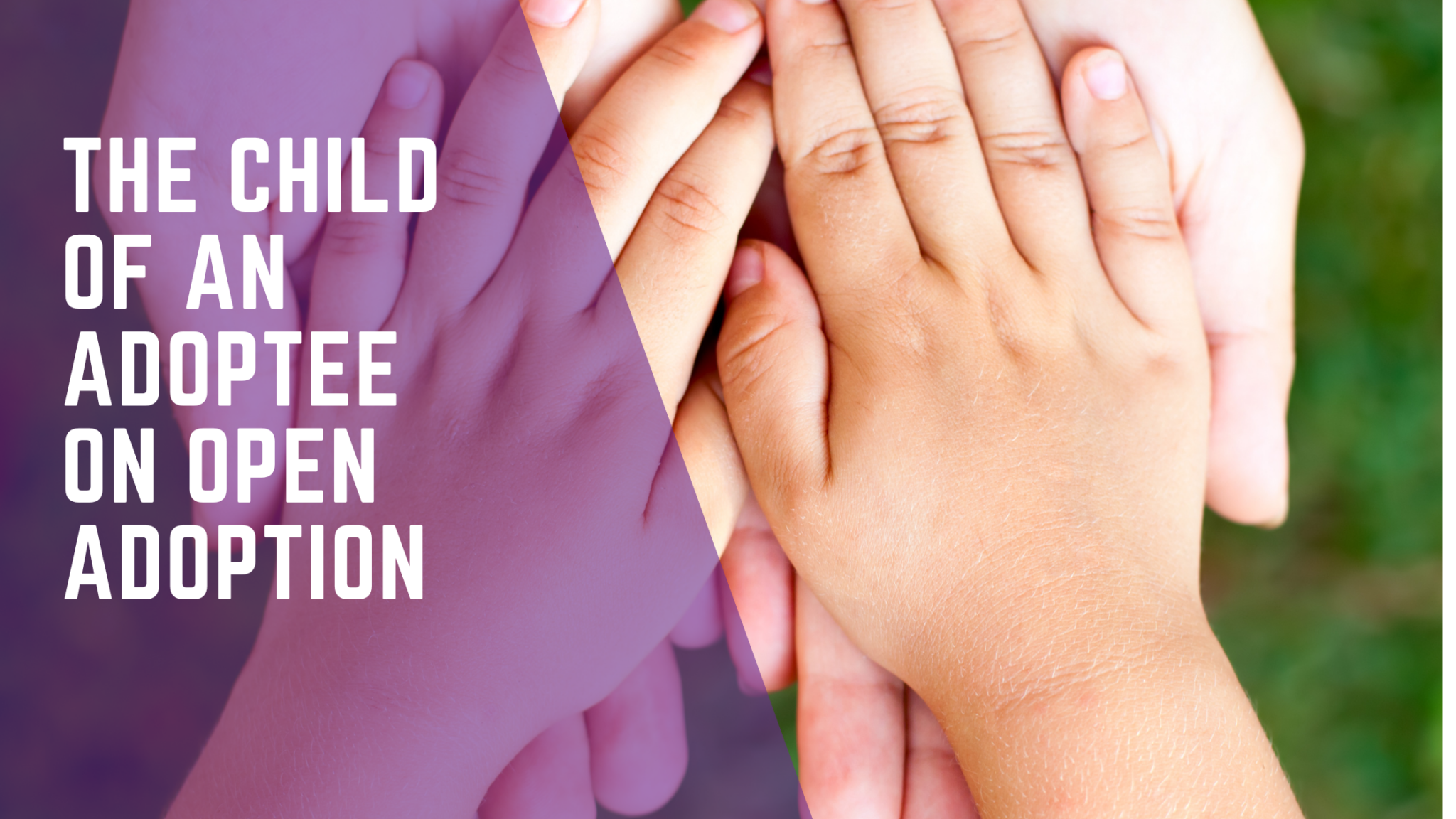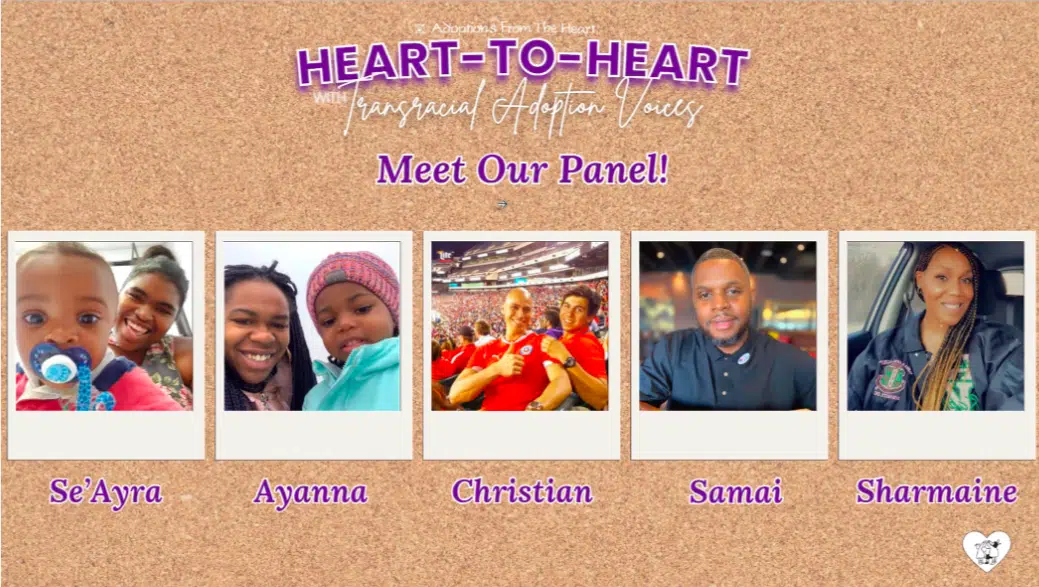Brittany Brooks’ Story
 Brittany Brooks is the Office Manager & Marketing Assistant in Adoptions From The Heart’s Wynnewood, PA Office. This is Brittany’s first position at an adoption agency, however, she is no stranger to the open adoption process. Five years ago Brittany went through the same process as many of the birth mothers who walk through the doors of Adoptions From The Heart.
Brittany Brooks is the Office Manager & Marketing Assistant in Adoptions From The Heart’s Wynnewood, PA Office. This is Brittany’s first position at an adoption agency, however, she is no stranger to the open adoption process. Five years ago Brittany went through the same process as many of the birth mothers who walk through the doors of Adoptions From The Heart.
“I was six months when I found out (I was pregnant). I was still having my period, I did not have morning sickness, I didn’t have any swelling, I literally didn’t feel like I was pregnant. I went to the doctor for something else, and then the doctor came out and said, ‘oh my gosh you’re pregnant,’ and I’m like no I’m not. She was like ‘you’re six months along honey!”
In 2013 when Brittany found out she was pregnant, she was also homeless. She and the child’s birth father, Eric, were living in Norfolk, Virginia. In 2013, the Norfolk Naval Base was forced to lay many of its employers off due to severe budget cuts. Many Norfolk residents found themselves jobless and facing financial burdens. Brittany found herself in the unemployment line alongside Eric who was recently downsized out of the navy. All of this after serving 15 years in the military.
At six months pregnant, Brittany was left with two choices: to parent or place the child for adoption. Both she and Eric were applying for jobs for a little over a year and were scraping by to support themselves, adding a baby to the mix seemed unrealistic. In the end, she ultimately listened to her heart by choosing an open adoption plan for the unborn child. It was hard for Brittany to come to terms with the fact that she was six months pregnant, and it was even harder to tell her family and the baby’s biological father that she decided on adoption.
Although Brittany and Eric are together now, at that time they were not. “I didn’t talk to him about it. I kind of pushed him out of the decision-making process. I pretty much made the decision for the both of us. His situation was really the main reason why I left him out, he was going through a lot. In my mind I felt like I was taking charge and taking something off his plate.”
It was Eric’s mother who revealed to Brittany his true grief over the fact that he would not physically be there to watch their son grow up. In Brittany’s words, Eric is a “Super Dad,” and is very involved in his three older children’s lives. It devastates him to think about not being there to raise his youngest son.
Meeting the Adoptive Parents
The adoption agency that served as the facilitator in Brittany’s adoption sent her out to Utah for three months providing her with both an apartment and driver for her doctor’s appointments. When Brittany told Eric that she was going to live in Utah for the duration of her pregnancy, he was scared and confused as to why she would want to go out there alone. Eventually, Eric came around and respected her decision. He faithfully called her each day asking how she was and let her know that he was thinking of her.
Brittany began looking through profiles of families during her first week in Utah. While she was looking through profiles, she stumbled upon a couple from Kentucky. Prior to deciding on adoption, the couple had endured so much devastation in their journey of becoming parents with three late-in-pregnancy miscarriages. The beginning of their adoption journey was met with its fair share of heartache as well. Prior to meeting Brittany, the couple had already experienced two disappointments.
“What got me was her attitude, she was still so positive. She’s very religious and said that during that time she knew even her husband couldn’t emotionally be there in the way she needed him to be and said, ‘so I let God just guide me through it.”
When Brittany and the couple connected for the first time via phone, she could sense their understandable apprehension after so many letdowns. Brittany assured them that she was certain of her decision and that she wanted only the best for her baby.
The Birth
The day finally came when Brittany was induced and welcomed her son into the world. Once the baby is born there is a 24-hour waiting period before biological parents can sign any adoption paperwork. Brittany had asked her social worker Morgan to be there early the very next morning. The reality of the situation hit hard as she signed the revocation papers while holding her son.
“You realize the weight of a pen, and that was so magnified to me. As you sign each paper you become very numb. As I signed each paper I kept looking back at my son and I thought, ‘wow this is really about to happen.”
Brittany stayed in the hospital for three days to bond with her son. She had also sent pictures of the baby to Eric, who as she explains “completely broke down.” He was there to cut the cord at birth for each of his three sons, except for their baby. Like all birth parents, Brittany had her fair share of sadness after the placement.
Despite her sadness, Brittany knew deep down she had made the right decision. Witnessing the adoptive parents meet and interact with her son for the first time served as an official sign that she had done the right thing. ”Just seeing the three of them and noticing the love they had for my son, it was amazing. I like to describe it as seeing life in motion. Her face lit up, his face lit up. They were showing him the amount of love that they would give their biological child. I just knew it felt right.”
Extended Family
The boy’s adoptive parents were required to stay in Utah for two weeks before they could legally take him home. During that time, Brittany talked to the baby’s adoptive parents almost every day. Their relationship quickly blossomed from semi-open, where she didn’t know their last names, to being very open to and knowing their home address Brittany explained “we all just fit, and we always say we feel like extended family. I hope that all birth parents, adoptive parents and adoptees get to that point with one another.”
The open relationship between Brittany, her son and the adoptive parents has grown stronger and stronger each year. It’s now been five years post-placement and Brittany and the family frequently send letters, pictures and gifts to one another. Due to the distance in location, they are not able to physically see each other as much as they would like but make it a priority to Skype and do video calls. The adoptive mother will also regularly reach out to Brittany for advice on certain topics from family health history to racial matters since it was a transracial adoption.
Although Brittany knew in her heart she was making the right decision, it was a struggle to find support, as much of Eric’s family did not approve of her actions. Eventually Eric’s aunt and mother came around to appreciate her for all the bravery and selflessness that went into ultimately choosing adoption.
It was ultimately Eric’s aunt’s words that brought the most comfort. She was very encouraging and supportive in telling me “you know the willpower that you have to have look beyond yourself, a lot of women don’t have that willpower. A lot of women think about the feelings they have when they’re holding that baby and they don’t want it to stop regardless if they have a proper home and the means to raise the baby. I’m just proud that you were able to look beyond your own feelings and your own needs.”
Working for Adoptions From The Heart
When Brittany began her adoption journey, she never imagined it would lead her to working at an adoption agency. One might think that working at an adoption agency when you are so close to the process could lead to an emotional setback for birth parents in the post-placement grieving process. For Brittany, it is a rewarding experience where she gets to see from the other side of the adoption process. The most important thing is that Brittany is now able to be there for others who are in a similar position that she was years ago. In May 2018 Brittany created Adoptions From The Heart’s first Birth Parent Support Group on Facebook. The birth mothers and birth fathers within this group tackle the important issues within adoption as well as motivational adoption stories within the news.
“Birth parents after the adoption often get forgotten about. There are support groups for adoptive parents during the waiting period and support groups for the adoptive parents after placement. There’s rarely a support group for birth parents unless an actual birth parent creates it. As an agency I think it is great for us to have these support groups. It’s only been up for a couple of months and I can’t wait to see it grow. I have a great feeling about it.”
Nine times out of 10 when an expecting mother first calls Adoptions From The Heart, it is the first time they get to speak with someone about the situation they are in. They are afraid to tell even those they are closest to about deciding on open adoption for their child, they are afraid of being cut-off and automatically ridiculed. “That initial meeting with your social worker is probably the most crucial to me,” said Brittany. Brittany and her adoption social worker also have a great relationship and keep in contact with one another.
From a birth parents perspective, Brittany notes that one thing that sets Adoptions From The Heart apart from other open adoption agencies is the mandatory one-year visit policy. “Not a lot of agencies are doing that,” said Brittany. Adoptions From The Heart requires adoptive parents to send pictures to the birth parents every month for the child’s first year. After the baby’s first year, Adoptions From The Heart requires birth parents to send at least one set of pictures and an update a year until the child turns 18.
Supporting Birth Parents and Addressing the Common Misconceptions Attached to Adoption
As a birth mother and an employee of an adoption agency, Brittany is regularly finding herself addressing the many misconceptions people have about birth parents. One of the most common misconceptions is that birth parents are or were either drug addicts or alcoholics. After telling people about placing her baby for adoption, one of the most common follow-up questions is “Oh what drugs were you on?” If it’s not drugs, people then ask how old she was assuming Brittany gave birth when she was a teenager. The reality is that women can be in a variety of situations where they might not be able to physically, financially or emotionally parent their baby. There are even women who are in their late 30s and early 40s who come to our agency and decide on adoption.
Everyday there are birth parents who receive criticism from friends and family about placing their child for adoption. Aside from facing constant criticism, it is also normal for a birth parent to second guess themselves periodically both before and after placement. Brittany encourages everyone within the Birth Parent Support Group to contact her via email or direct message with questions, or simply whenever they need someone to talk to.
“My advice for birth parents is to always think about your reason (for choosing adoption). Sometimes you will second guess yourself. If you place your child for adoption for financial or certain personal reasons, and you don’t see that changing within the next six months, you should probably go forward with the adoption. If you feel like any of your initial reasons for choosing adoption could change within the next six months, then you should probably parent.”
The open adoption journey for all members of the triad (Adoptive Parents, Birth Parents & Adoptee) may not always be easy, but it can open the door to more love and support between all parties. Brittany continues to advocate for open adoption and is beyond proud of the opportunities it has provided for her son. “I believe open adoption is the future,” said Brittany.



